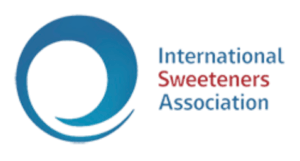ISA statement in response to new study by Malbert et al.
Brussels, 26th July 2019: The International Sweeteners Association (ISA) responds to a new study by Malbert, Horowitz and Young on low calorie sweeteners and insulin sensitivity1, pointing to the limitations of this study and to the wealth of robust scientific evidence that demonstrates no adverse effect of low calorie sweeteners’ consumption on insulin sensitivity.
Unlike the study by Malbert et al., which was conducted in miniature pigs, the collective evidence from randomised controlled trials (RCTs) and from systematic reviews of RCTs, conducted in humans, provide strong evidence that low calorie sweeteners including sucralose and acesulfame-K do not cause an increased uptake of glucose following a meal and do not adversely affect glycemic control and homeostasis.2,3 Several clinical studies published recently further show no adverse effect of low calorie sweeteners’ consumption on insulin sensitivity.4,5,6 Importantly also, the benefits of low calorie sweeteners in diabetes management in that, contrary to sugars, they do not raise blood glucose levels after food consumption have been recognised by the European Food Safety Authority (EFSA).7
When looking at the results of the study by Malbert et al. more specifically, it is crucial to keep in mind that this is a small animal research in morbidly obese miniature pigs conducted under certain experimental conditions that do not necessarily apply in real-life to humans. In general, caution is necessary in the extrapolation of data from animal studies to humans, when it comes to effects on glucose homeostasis and on body composition, especially since none of the suggested effects of low calorie sweeteners has been confirmed in humans.8
Regarding the interpretation of the study outcomes, the significance of these findings is questionable since the whole-body insulin sensitivity and glucose uptake remained unchanged by the supplementation of low calorie sweeteners. Also, the observed increase in glucose uptake in some animal organs, which according to the authors is a phenomenon that occurs during weight gain in obese animals and humans, did not lead to an increase in the animals’ body weight.
At a time when obesity and non-communicable diseases including diabetes remain major global health challenges, and public health authorities are encouraging food manufacturers to replace sugar and reduce calories as part of their reformulation goals, it is critical that the public is provided with reliable science-based information regarding the safety and the utility of low calorie sweeteners, which is supported by food safety authorities and health organisations worldwide.
Used in foods, beverages and tabletop sweeteners, low calorie sweeteners including acesulfame-K and sucralose can provide people with a wide choice of sweet-tasting options with low or no calories, and thus can be a useful tool, when used in place of sugar and as part of a balanced diet, in helping reduce overall sugar and calorie intake, as well as in managing blood glucose levels. Low calorie sweeteners are also non-cariogenic, which means that they do not contribute to tooth decay.8


